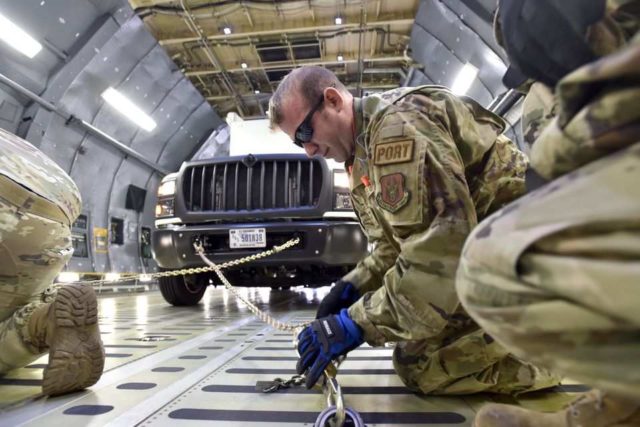
Pics: Westover Air Reserve Base prepares hundreds of aerial port squadrons to go anywhere at any time Staff Sgt. Andrew Lafontaine secures a vehicle in a giant C-5M Super Galaxy. (Don Treeger / The Republican/TNS)
As two airmen cautiously directed a large truck into a C-5M Super Galaxy jet, a spotter sat atop a ladder and a half-dozen others dropped onto the pavement to watch it from below.
“Nice and slow,” one of the members of the 58th Aerial Port Squadron said as a Federal Emergency Management Agency truck crept up a metal ramp and into the body of the world’s second-largest plane on Wednesday.
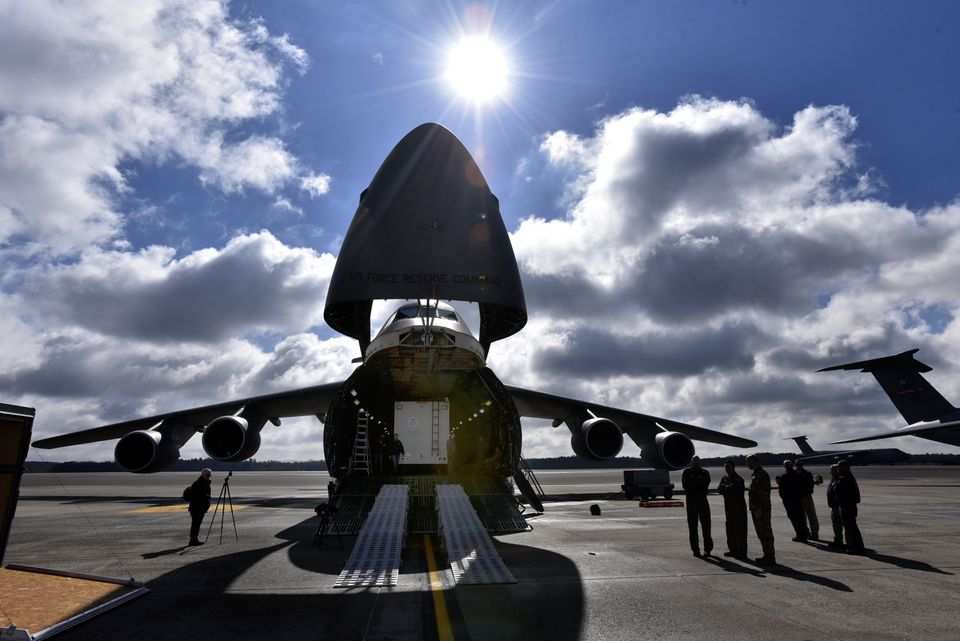
With just an inch or two of clearance, the spotters were watching to make sure the brand new FEMA control and command vehicle did not strike the top of the plane when it was driven into the cargo hold. Those on the ground were making sure it did not damage the runway by scraping the pavement, said Master Sgt. Thomas Rowland, who works in human readiness resources for the squadron.
The Chicopee resident planned and coordinated the week-long rapid air mobility response exercise that joined more than 300 people from 15 organizations, including FEMA, Connecticut’s Air National Guard 103rd Airlift Wing based at Bradley International Airport and a group from Seymour Johnson Air Force Base in North Carolina.
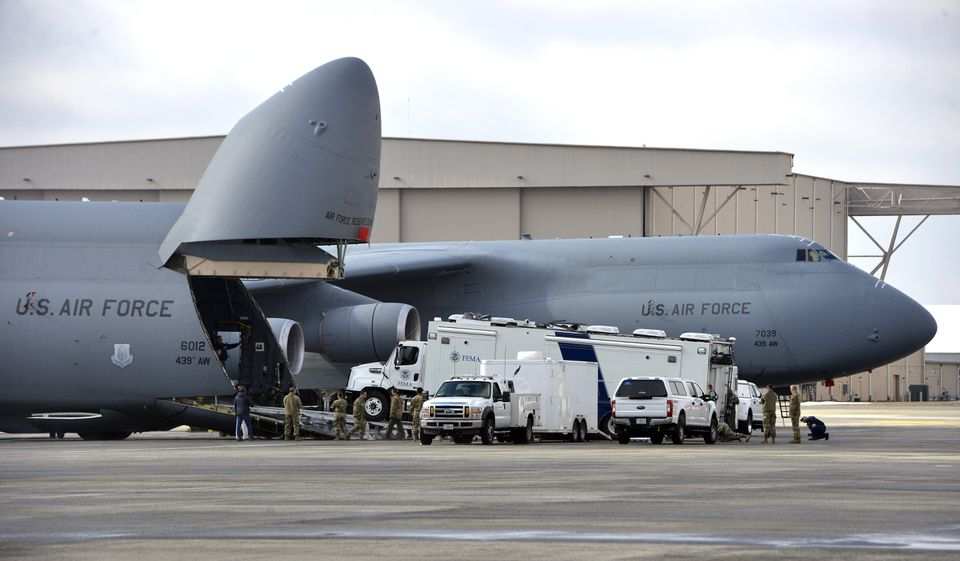
The exercise included rapid cargo loading and unloading, medical transports and, on Tuesday, the 103rd dropped packages of what could have been rations out of a plane while a team on the ground recovered them, said Senior Airman Alex Lowe, a public relations specialist.
“It’s vital. It’s not like riding a bike. You forget the tricks — wheelies and whatnot — if you don’t do it enough,” Rowland said. “We like to put on a major event once a year, sometimes more. There are multiple opportunities elsewhere, but Westover is uniquely suited for this type of exercise.”
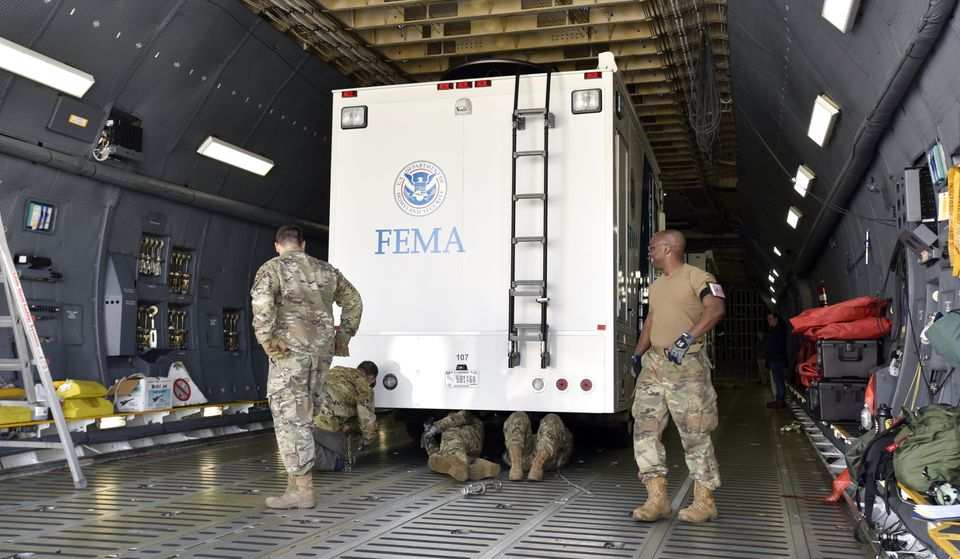
The Western Massachusetts air base has an extra-long runway, a massive flight line and an open area where airdrops can be made, he said.
The exercise was set up in what he called a “bare base setup” to give the units the capability to go to an austere location and almost immediately move cargo, troops or civilian passengers, Rowland said.
The training exercise was scheduled and organized more than a month ago, before Russia invaded Ukraine. But Rowland noted any of the aerial port squadrons, which move cargo, could be assigned to any mission at any time.
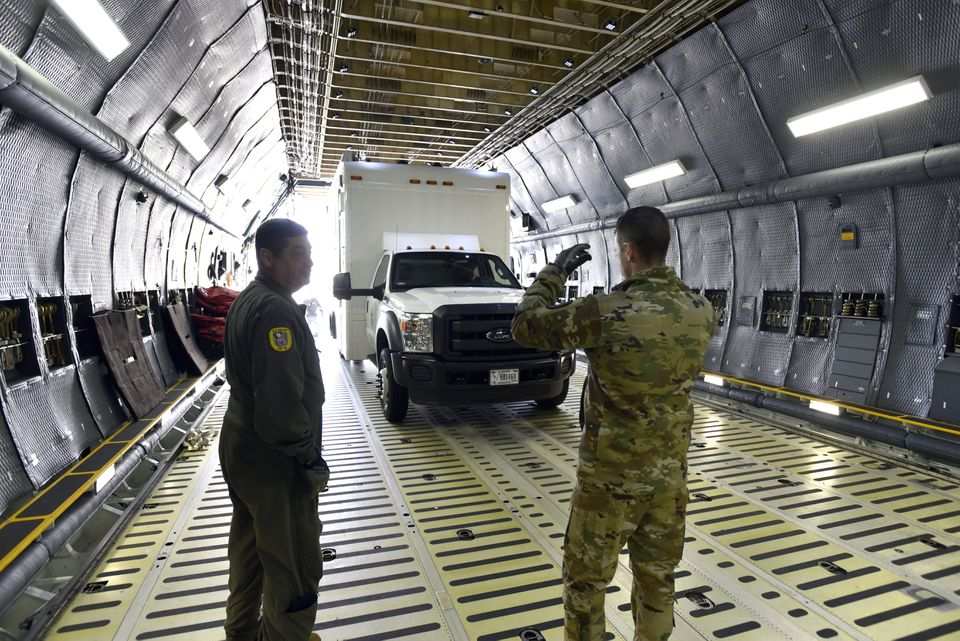
“This is why we constantly, constantly are training, so we can go anywhere at a moment’s notice,” Rowland said. “It wasn’t specifically a Ukraine training event, however, if we get the call we can hit any environment that we need to go to.”
The training exercise involved Westover’s C-5M Super Galaxy and C-130 Hercules cargo jets, which the squadron members see frequently. In addition, a new KC-46 Pegasus was flown to the base to introduce the plane to many of the people for the first time, said Tech. Sgt. Alexander L. Church, of Westfield, a specialist with the 58th Aerial Port Squadron.
The plane is designed to refuel aircraft while flying, but it has other capabilities as well. The exercise gave the members of the different squadrons a unique chance to learn about it, he said.
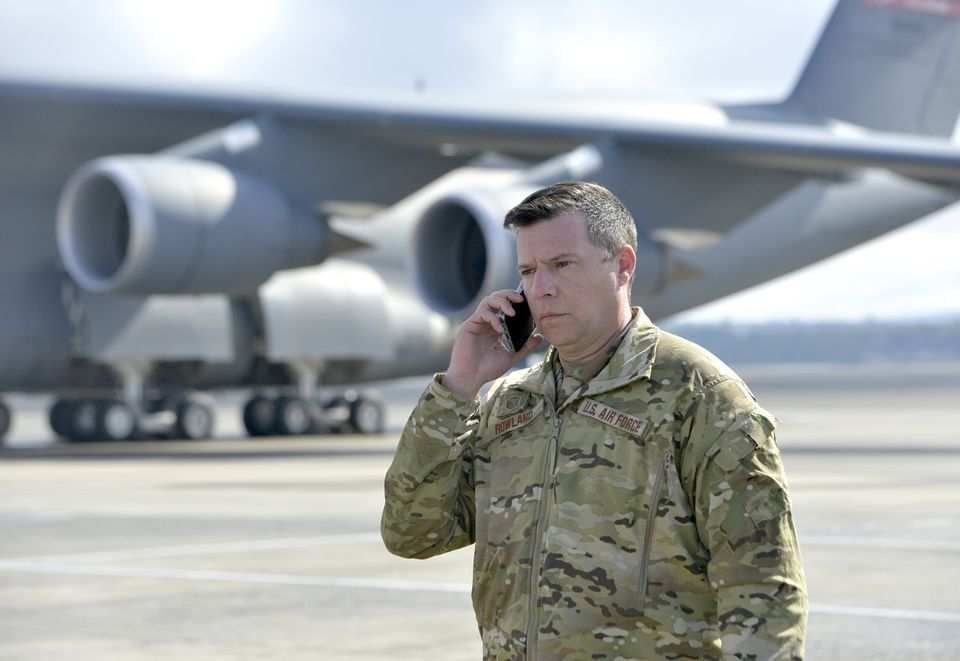
Over the years the aerial port squadrons from Westover have been frequently deployed to Afghanistan, Iraq and other locations around the world. Sometimes entire units have been sent and other times members are sent alone or in small groups to augment another military unit, Church said.
Being an aerial porter is a versatile job and can translate to any plane, but it isn’t as easy as it seems at first glance, he said.
“Everything you do is very critical and you always have to pay attention to detail,” he said.
When loading a plane, especially with vehicles and other large equipment that a C-5 can carry, cargo has to be placed in the right spot and must be carefully secured to account for the G-forces from takeoff and landings, Church said.
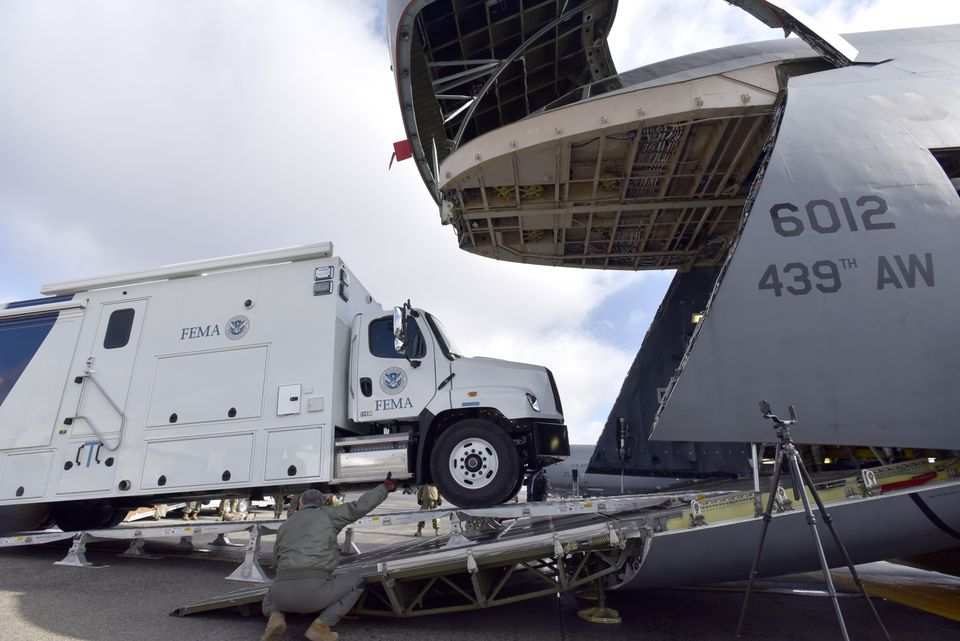
“You have to ensure the center of balance is where it needs to be,” he said, adding even chains can break, so loadmasters have to be sure the ties they are using to secure the cargo are adequate.
Along with the new KC-46 plane, the squadrons were also working with the new just-out-of-the-factory FEMA command vehicle that can be flown to any disaster area to serve as a headquarters for relief workers, said Kevin Canfield, a logistics manager from FEMA based in Maynard.
Westover often provides humanitarian assistance that can range from delivering a donated ambulance to a rural town in Central America to heading to a location devastated by a hurricane or tornado. Because of that it frequently works with FEMA, he said.
FEMA brought multiple vehicles for the exercise, but the most notable was the new command vehicle, which needs to be certified to be flown by the Air Force.
In the case of an emergency, the vehicle can be certified in a day, but it typically takes three weeks or so. The training exercise helped in the process because it gave Canfield the chance to submit photographs and other information about how the large vehicle has to be loaded.
The exercise gave FEMA officials data on how long a ramp is needed and other information which will be submitted in a process to get it certified, he said.
“This is our base of choice when we need to go somewhere,” Canfield said. “They are so accommodating. They make life easy for us.”
___
© 2022 Advance Local Media LLC Distributed by Tribune Content Agency, LLC




